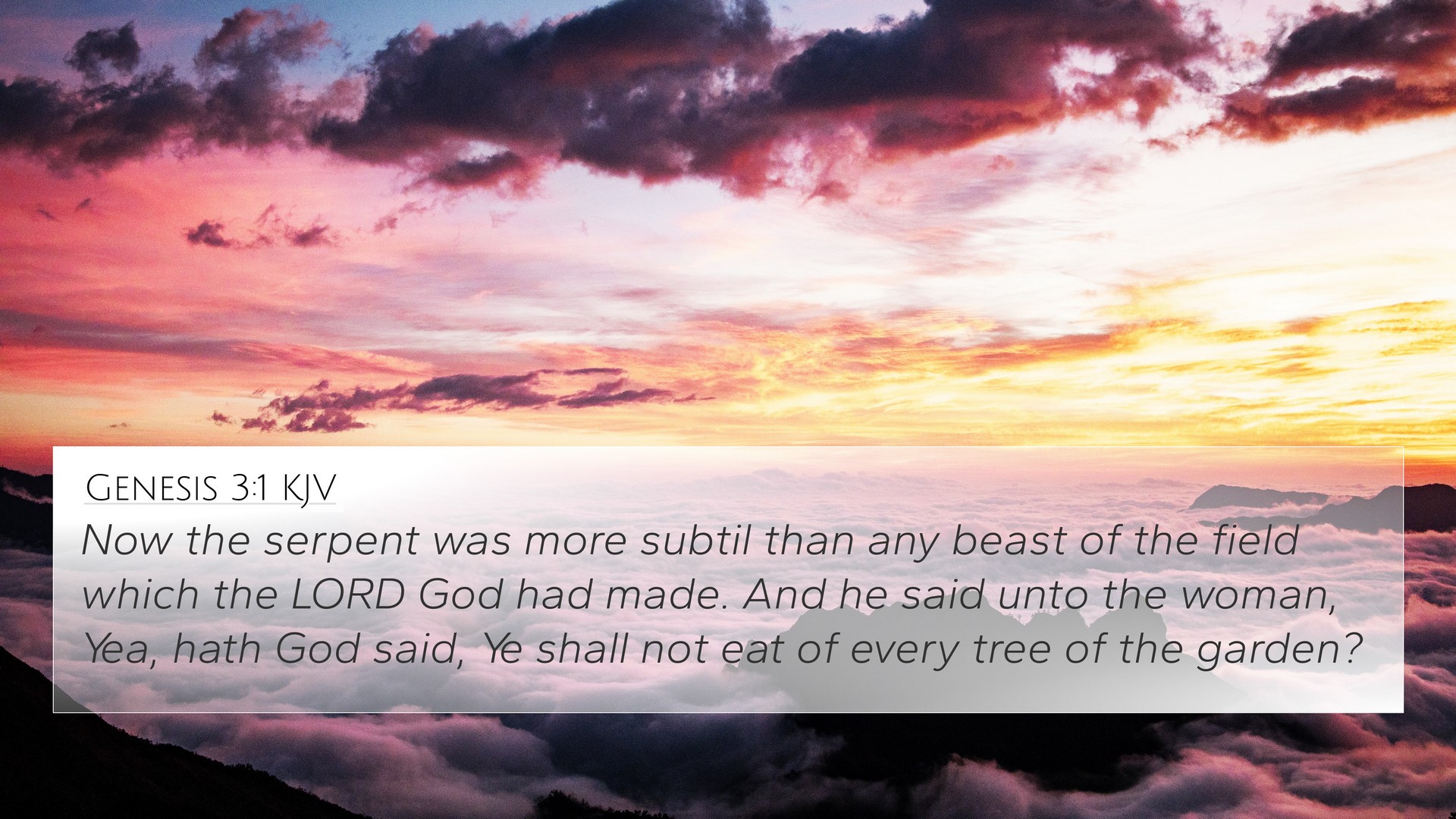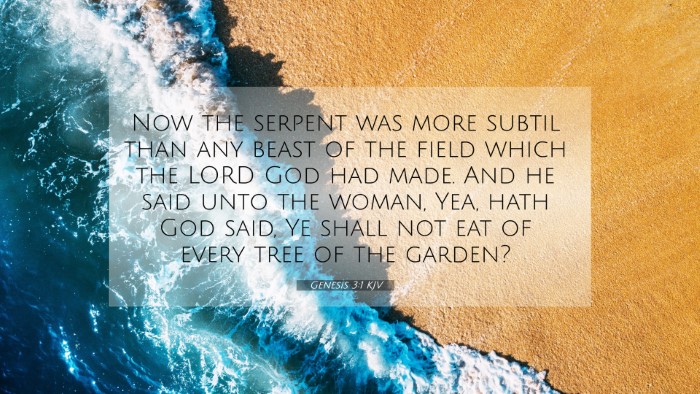This section features a detailed cross-reference designed to enrich your understanding of the Scriptures.
Below, you will find carefully selected verses that echo the themes and teachings related to Genesis 3:1 KJV. Click on any image to explore detailed analyses of related Bible verses and uncover deeper theological insights.
 2 Corinthians 11:3 (KJV) »
2 Corinthians 11:3 (KJV) »
But I fear, lest by any means, as the serpent beguiled Eve through his subtilty, so your minds should be corrupted from the simplicity that is in Christ.
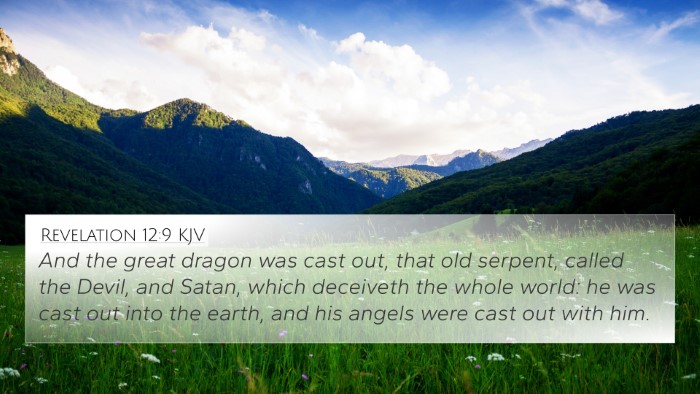 Revelation 12:9 (KJV) »
Revelation 12:9 (KJV) »
And the great dragon was cast out, that old serpent, called the Devil, and Satan, which deceiveth the whole world: he was cast out into the earth, and his angels were cast out with him.
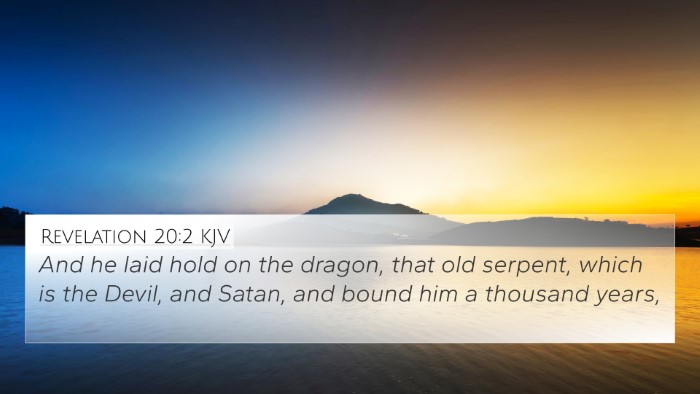 Revelation 20:2 (KJV) »
Revelation 20:2 (KJV) »
And he laid hold on the dragon, that old serpent, which is the Devil, and Satan, and bound him a thousand years,
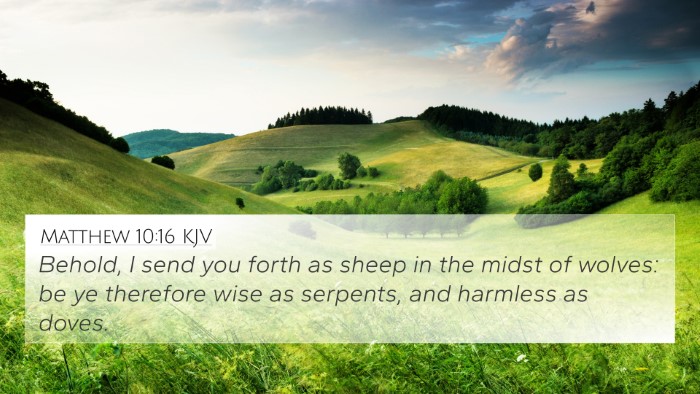 Matthew 10:16 (KJV) »
Matthew 10:16 (KJV) »
Behold, I send you forth as sheep in the midst of wolves: be ye therefore wise as serpents, and harmless as doves.
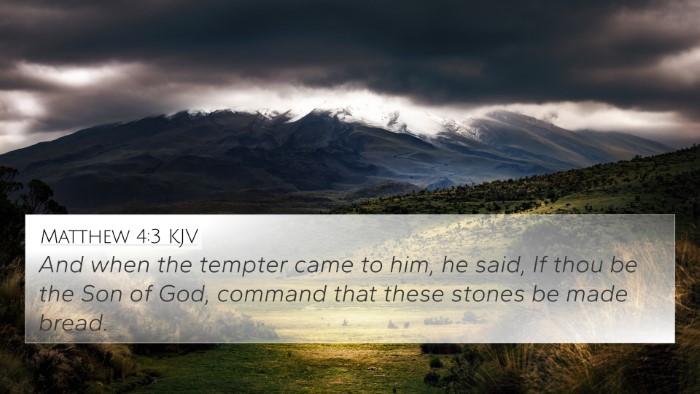 Matthew 4:3 (KJV) »
Matthew 4:3 (KJV) »
And when the tempter came to him, he said, If thou be the Son of God, command that these stones be made bread.
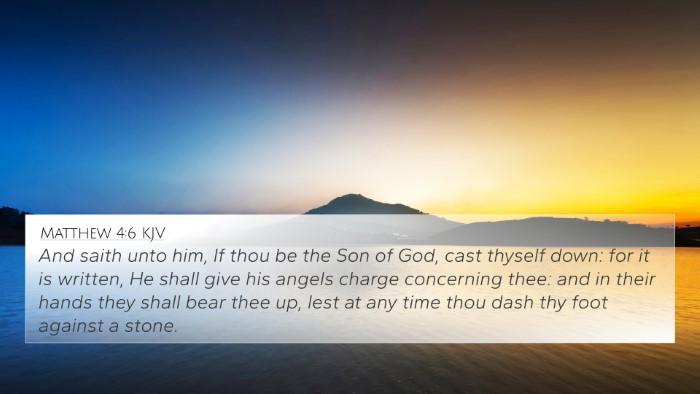 Matthew 4:6 (KJV) »
Matthew 4:6 (KJV) »
And saith unto him, If thou be the Son of God, cast thyself down: for it is written, He shall give his angels charge concerning thee: and in their hands they shall bear thee up, lest at any time thou dash thy foot against a stone.
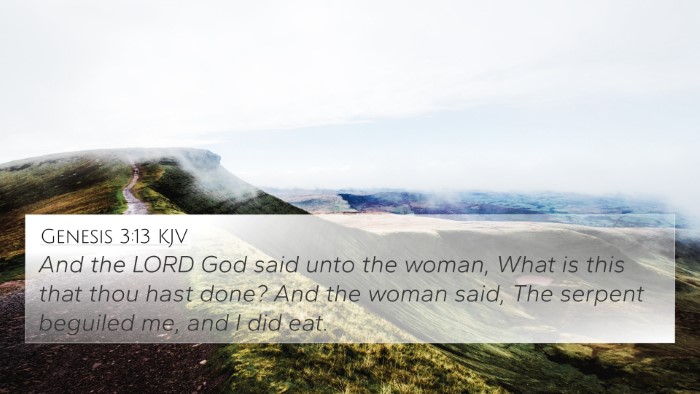 Genesis 3:13 (KJV) »
Genesis 3:13 (KJV) »
And the LORD God said unto the woman, What is this that thou hast done? And the woman said, The serpent beguiled me, and I did eat.
 Ecclesiastes 4:10 (KJV) »
Ecclesiastes 4:10 (KJV) »
For if they fall, the one will lift up his fellow: but woe to him that is alone when he falleth; for he hath not another to help him up.
 Isaiah 27:1 (KJV) »
Isaiah 27:1 (KJV) »
In that day the LORD with his sore and great and strong sword shall punish leviathan the piercing serpent, even leviathan that crooked serpent; and he shall slay the dragon that is in the sea.
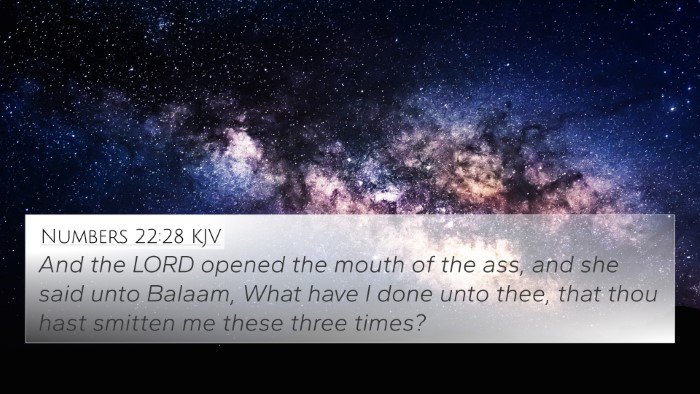 Numbers 22:28 (KJV) »
Numbers 22:28 (KJV) »
And the LORD opened the mouth of the ass, and she said unto Balaam, What have I done unto thee, that thou hast smitten me these three times?
 1 Peter 3:7 (KJV) »
1 Peter 3:7 (KJV) »
Likewise, ye husbands, dwell with them according to knowledge, giving honour unto the wife, as unto the weaker vessel, and as being heirs together of the grace of life; that your prayers be not hindered.
 Matthew 4:9 (KJV) »
Matthew 4:9 (KJV) »
And saith unto him, All these things will I give thee, if thou wilt fall down and worship me.
